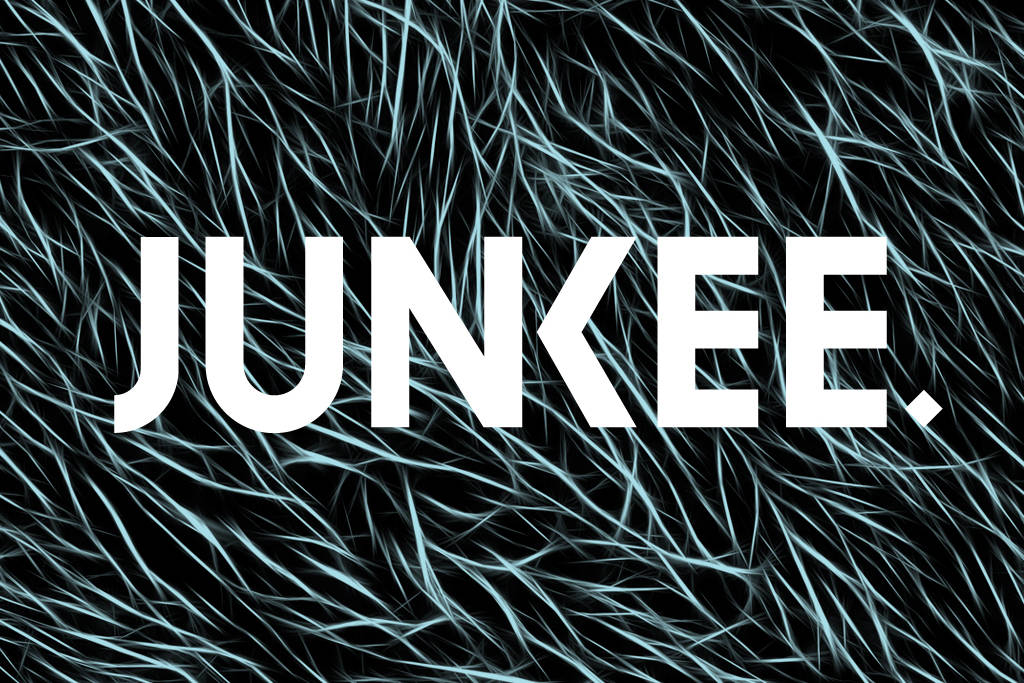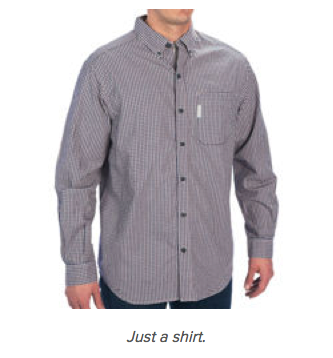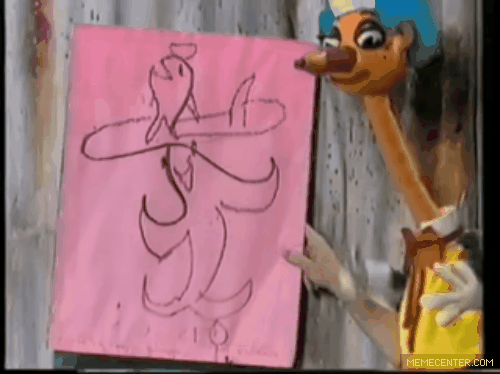Editors’ Picks: The Best Junkee Articles Of 2014
From the Sydney siege to Mr Squiggle, here are Junkee's best stories of the year.

2014 is finally (almost) over, and it’s time to take a look back and revisit some of our favourite articles from the year that was. In between all the champion dogs and the government schadenfreude, we published some pretty excellent reads on everything from Australia’s media to endometriosis to the impact of Nicki Minaj’s butt on modern feminism.
Our editorial team, which is still small enough to fit into a wheelbarrow if they tried hard enough, went back through the year’s content and picked their favourite reads. Hope you like ’em. (We were going to do a “Most Popular Junkee Articles of 2014” list, but since it would almost entirely consist of times Tony Abbott failed spectacularly on television we decided to go with something a little different.)
–
‘Eight Things I Learned While Buying My First Apartment‘, by Dylan Behan — January 16
Someone under 45 bought a piece of property, which is amazing enough in itself — but Dylan went a step further by explaining how a young person might actually go about buying their first home in an age where most teens consider that prospect to be located in one of the magical lands that swing by the top of Enid Blyton’s Faraway Tree every now and then.
He doesn’t pull punches about how frustrating and intimidating it can be, and gives a lot of useful advice on how not to get ripped off, screwed over or generally dicked around. Keep it in mind down the track. — AM
–
‘Let Me Tell You About The Time My Uterus Exploded‘, by Kirsty Brown — March 7
Endometriosis affects one in ten Australian women, with a prevalence just shy of breast cancer — and until reading this article, I’d somehow never heard of it. Kirsty’s piece was an open, powerful exploration of her experience with the debilitating condition, which was overlooked, dismissed and misdiagnosed for half of her life, and has left her with only one fallopian tube, a scarred uterine wall, and diminished fertility. “In this month of awareness,” she wrote, “it’s important that we share our stories, and that doctors are willing to listen.” — SH
–
‘That Time I Accidentally Changed Hip Hop History‘, by Mel Campbell — March 19
In May 2004, Mel Campbell had a piece published in the Saturday Age which contained a fact about the Neptunes. That same fact made it onto Pharrell’s Wikipedia page, and has since been quoted in GQ, the Irish Times, The Huffington Post, the Australian and The Guardian. The problem is, when contacted ten years later on Twitter, Mel realised she had no idea where she got it from. So she embarked on a retrospective fact-checking journey. A really, really in-depth one.
The piece is about verification in journalism. It’s about information hygiene. It’s about how easily misinformation can spread these days. And it’s about poor Mel getting stuck in a rabbit-hole, coming up empty-handed and a bit pissed off at herself.
–
‘The Quest For The Hottest Chili On Earth Almost Killed Me‘, by Elmo Keep — March 24
“The closest I have ever come to dying was one night at our local Mexican restaurant. Time slowed. I couldn’t get any air into my lungs. For a second I hovered behind myself at the table, watching my imminent death unfold. I came back into my body and looked down at my taco, and I realised that this taco would be the last thing I ever saw.”
And that, friends, is how you start an article.
–
‘How The West Was Won‘, by Alex McKinnon — April 8
After Scott Ludlam’s now-infamous Tony Abbott smackdown went viral on our site in March, we sent Alex McKinnon — then a Junkee freelancer — to Western Australia, to follow the Senator’s campaign through the five days leading up to the state’s election do-over. This piece was a pretty defining moment for us: it the first time we’d attempted something so ambitious, and it was also our first longform article, custom built by our design and tech team.
A few months after we published this, Alex became Junkee’s assistant editor, and most frequent bringer of sass. — SH
–
‘Normcore Was Always Silly, But Now It’s Meaningless Too‘, by Edward Sharp-Paul — April 24
Unlikely fashion correspondent Edward Sharp-Paul stripped the normcore trend back to its bare essence (loose fitting jeans, mainly), damned the inherent ludicrousness of the concept itself (particularly when adopted in marketing copy from outlets like Uniqlo), and came up with some hilarious captions in the process.
“Rest assured that normcore will be both ubiquitous and utterly meaningless by year’s end: people will just go on wearing what they’ve always worn, but now we have a stupid new name for it.” — SH
 Read more from Edward Sharp-Paul.
Read more from Edward Sharp-Paul.
–
‘Miranda Devine’s Latest Column Is Titled ‘NRL Bosses Are Totally Gay’. It Doesn’t Get Much Better From There‘, by Ben Jenkins — May 7
I stumbled across this piece while finishing up a four-year media degree where we were tasked with dissecting columns like this without ever using sarcasm or swears. Every time I read it, it feels like sweet, sweet relief. And that’s not to say that it’s not intelligent or well-reasoned. Ben Jenkins has a beautiful way of being all these things while also being devastating and hilarious.
“Do you think that News Corp columnist Miranda Devine ever considers in her quieter moments, maybe in the dead of the night when all are asleep and the house is settling, that she might, maybe possibly, be not cut out for this journalism caper? And if she does do that, do you reckon that in those moments she feels a sudden pang of anxiety, like an icy hand lightly brushing over her heart, when she begins to wonder, even for a fraction of a second, if she really is cut out to write words about things in a paper read by people? … In those moments, if they ever do happen, I wonder if the only thing Miranda Devine can do to halt this descent is to stumble to her computer while the room spins and the floor races away, open a Word document, and set that cursor racing across the screen, leaving words in its wake like someone shitting themselves while running a marathon to nowhere.”
A masterclass in sass. — MW
–
‘I Went On Q&A And Had An Awesome, Terrifying Time‘, by Nic Holas — July 29
Junkee contributor/HIV-positive activist Nic Holas was invited onto Q&A during the tragedy-marked week of the national AIDS conference, and totally nailed it. As is often the case when the show revolves around experts and not politicians, it was one of the best episodes of the year.
Here, he writes about what that was like. — SH
–
‘In Defence Of Nicki Minaj’s Right To Flaunt Her Booty‘, by Lisa Dib — August 8
I’ve sat through countless YouTube clips with a furrowed brow and many beer-fuelled shouting matches at the pub, and I still have no idea how I feel about Nicki Minaj. All things considered I think my position generally falls under the banner of ‘Woah, people are way too invested in this woman’s ass’. In her deconstruction of the monumental clusterfuck that was ‘Anaconda’, Lisa Dib put things a little more eloquently citing issues of race, representation and expectations of female sexuality. I don’t know if I’m completely on board with embracing Minaj as a feminist icon, but I sure am glad there are pieces like this to make me think about it. — MW
–
‘Now More Than Ever, We Need To Talk About Mental Illness’, by Alex McKinnon — August 12
Everyone has some degree of morbid fascination with celebrity death, but when Robin Williams’ died he started a conversation; if this could happen to him, it could happen to anyone. We’re a country with a notoriously stiff upper lip and often shy away from talking about things like depression. Hopefully in the years to come, we’ll remember pieces like Alex’s, and not just some sentimental memes from Aladdin. — MW
–
‘How Can We Be There For People Who Suffer From Mental Illness?‘, by Sunili Govinnage — August 29
Post-Robin Williams’ suicide, mental illness was in the spotlight more than ever, and a lot of people realised there was a knowledge gap that good intentions couldn’t bridge when it came to wanting to help friends and loved ones with mental illnesses. Sunili’s piece was (and is) a straightforward, no-nonsense guide for anyone trying to work out how to be there for someone who’s mentally ill in practical, respectful ways, without browbeating or scolding anyone. Is don. — AM
–
‘A Potential Terrorist Attack On Australia Was Just Met With A Collective “Meh” Because The Guy Behind It Isn’t Muslim‘, by Drew Rooke — September 2
What’s the difference between a “terrorist attack” and a “bomb plot”? That was the question Drew Rooke asked of Australia’s media as police kicked down doors in Sydney suburbs and tabloid front pages screamed about Jihadi boogeymen. Drew’s highlighting of the double standards Australia’s media falls into when a violent guy is brown as opposed to white was a hugely important point to make, and it’s only gotten more relevant since. A fantastic piece. — AM
–
‘Why We Travel‘, by Sam Cooney — September 16
You know a piece of writing is good when it combines quotes from both Nicolas Cage and Henry Miller. Though it’s one of the longest things we’ve ever published, this sprawling story detailing the trip of a bunch of Australians travelling around the US in an old Canadian school bus is much more deserving of a novel. Perfect summer read for a bit of wanderlust. — MW
–
‘Solidarity Isn’t Enough: Australia Needs To Hear More Muslim Voices‘, by Aicha Marhfour — October 1
Relevant now more than ever, this piece gave us some perspective on being Muslim in Australia. Though solidarity is great — #illridewithyou is still trending as I write this — it’s important to remember the larger goals of representation and equality. “We need to hear Muslim voices on the radio, read their bylines, and see Muslim faces on television, beyond the token guest or two on Q&A.” Yep. When one of our most-respected newspapers has basically no idea what their columnist (and one of the country’s most successful and respected Muslim personalities) Waleed Aly looks like, you can’t deny she has a point. — MW
Read more from Aicha Marhfour.
–
‘The Australian’s Media Editor Goes To Uni “Undercover”‘, by Steph Harmon — October 13
When The Australian‘s media editor, Sharri Markson, boldly went undercover in a series of Sydney Uni media lectures to “expose” left-wing bias in Australia’s universities, it said a lot more about her — and her employer, Australia’s newspaper equivalent of an old man on a porch with a shotgun — than it did about the media lecturers Markson painted as Communist sleeper agents. As a USyd media alumnus, Steph was pretty well set-up to tear down all of Markson’s nonsensical conclusions, but it was the very polite burns sprinkled throughout that made it a hit:
“At the end of the stint, Markson was outraged by what journalism students were being taught: that unbiased media plays a crucial role in the healthy functioning of democracy; that the government’s media policy occasionally favours corporate interests; that media ownership can affect the bias of the newspapers; and that News Corp — her employer — was a powerful company with interests in and an impact on how the government is run…In short, she was being taught — apparently for the first time — some fairly basic things about how the Australian media works.”
Ooft. — AM
–
‘Junk Explained: Freya Newman, And Why We Need Whistleblowers‘, by Jenny Noyes — October 24
Junk Explained is my favourite ongoing series at Junkee. Actually it’s the only ongoing series we have. But it’s great!
The Freya Newman/Frances Abbott fiasco had so many angles to it: hypocrisy; nepotism; corruption; whistleblowing. Jenny covered it all, tying in broader ideas about the importance of whistleblowers, and the ethical implications of a democracy that fails to protect them. “One of the most annoying things about a story like Freya Newman’s is that in the absence of legal protection as a whistleblower, we end up debating her actions rather than the ones she has exposed.” — SH
–
‘Australia, Prepare To Be Humiliated On Climate Change At The G20‘, by Luke Ryan — November 10
What I love about this article is how ridiculously right it turned out to be. Like, no one could have predicted how correct this article would end up being. The President of the United States destroying Tony Abbott on climate change? Yep. The world getting on with global emissions reduction planning and completely ignoring the giant child running the host nation? Check. A PM impersonator doing better than the real thing? Got it right here. Either Luke Ryan has excellent political radar, or he is a witch. My money is on Luke Ryan being a witch.
To be clear: Luke Ryan is a witch. — AM
–
‘How To Make Contact With Aliens: An Interview With A Conspiracy Theorist‘, by Oscar Schwartz — November 17
In which Oscar Schwartz — my favourite writer on the dark mysteries of internet culture — asks conspiracy theorist Kerry Cassidy all the questions I’ve ever wondered about aliens, in a respectful, non-exploitative way. What do they look like? Why are they hiding? Have you met one?
She has. “A man from Andromeda sat next to my bed all night talking to me, and then when I woke up I said, “Wait! Where are you from?” He said, “Andromeda”, then left. He was a little old man. Smallish guy, with a balding head. He just looked human.” — SH
Read more from Oscar Schwartz.
–
‘Remembering Mr Squiggle: Surrealist, Philosopher, Creative Mastermind‘, by Toby Fehily — November 20
On the same day that Malcolm Turnbull confirmed $254 million worth of cuts from the ABC’s budget, arts critic Toby Fehily sent in an ode to a legend of the network: Mr Squiggle. The piece was part love letter, part profile, part theoretical critique.
“What made Mr Squiggle stand out among other Surrealists was his use of economy and restraint, his ability to conjure up richly and detailed imagery with a few, swiftly executed bare lines. Describing one of the works on canvas he produced during his later period, Mr Squiggle said, ‘The fish is balancing on a surf ski and the surf ski is balancing on a seal’s nose and the seal is balancing on a ping pong ball – he’s using it as a roller skate – and there’s a tomato balanced on top of the fish’s nose.’ That he could say so much with so little speaks to a mastery of both medium and concept.” — SH

–
‘How Should We Feel About FCKH8’s Controversial New Anti-Domestic Violence Clip?‘, by Meg Watson — November 26
We only hired Meg as a staff writer a month ago, and she’s already written enough fantastic pieces to make me feel manifestly insecure about myself. Back in October I fell hook line and sinker for that t-shirt ad cunningly disguised as an Upworthy-style Uplifting Video courtesy of FCKH8, and when they did a follow-up a month later Meg dissected the knotty ethical questions it raised better than pretty much anybody. Get into it. — AM
–
‘On Mark Latham, Derryn Hinch, And Old Farts Everywhere‘, by Eleanor Robertson — December 10
There’s a certain kind of young writer who, much like a leech, feasts on vast, old, slow-moving creatures to gain strength, feeding on whatever vitality they have left. I am one of those writers. So is Eleanor Robertson, and in the vast Boomer playground that is Australian public life, there’s so much feasting to do.
First defining the place of Old Farts in our society, Eleanor goes on to lovingly dismantle two of the most old-farty specimens known to science: Mark Latham and Derryn Hinch. Besides illustrating the almost-hilariously outdated nature of their views on The Womens, she rightly points out that Derryn Hinch “has been an Old Fart since the time of his birth at age 57”. It is a lot of fun.
–
‘Keep Calm And Don’t Speculate: How To Be Helpful On Social Media Today‘, by Alex McKinnon — December 15
With a full-time editorial staff of two and a horrifyingly limited budget, the best thing we could do during the Sydney siege was not add to the noisy, unverified aggregation that was crowding out genuine reporting. Alex’s piece took a step back from it all, to highlight the dangers that were unfolding on the news and on social media, where falsities and suspicion was spreading in the absence of real information.
It was the most recent of a classic McKinnon genre: the Let’s-Look-At-This-Properly piece, as seen here, here and here. — SH
–